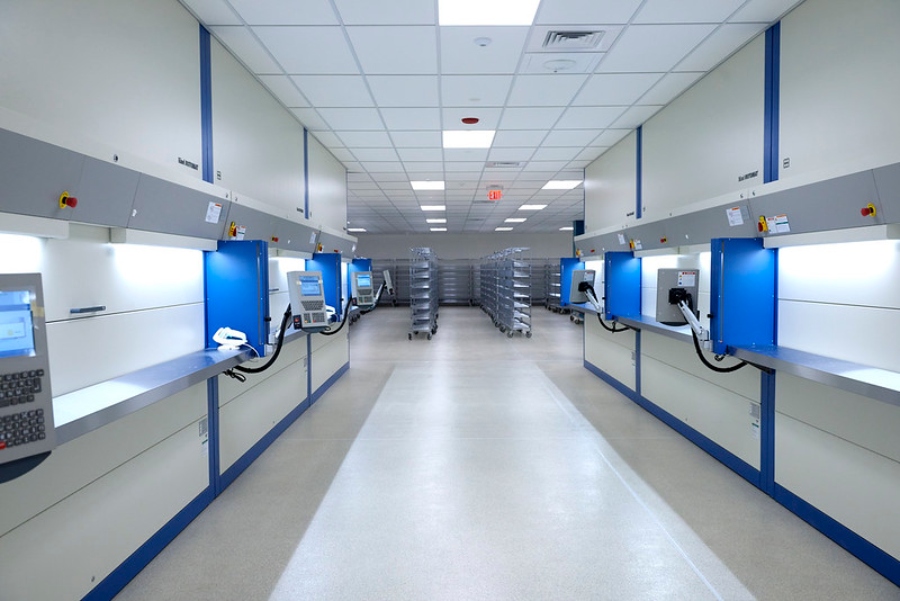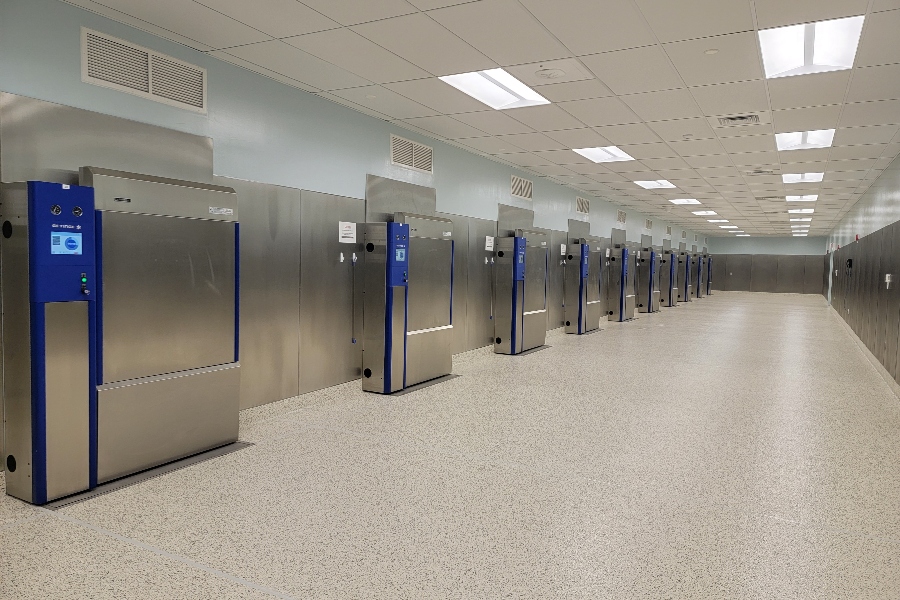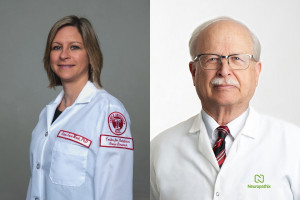Inside Penn’s Massive New Medical Equipment Sterilizing Facility
Penn Medicine’s Interventional Support Center will clean and re-package surgical supplies for their hospitals and outpatient centers.

Penn’s new Interventional Support Center will sterilize and process medical instruments and supplies from up to 200 surgical cases daily. Photograph courtesy Penn Medicine
Following a year that’s put lots of stress and strain on healthcare systems and ignited conversations around hospital capacity, Penn Medicine is introducing a brand-new medical equipment sterilization facility that will clear out space at local hospitals for expanding their services, while creating one centralized location for processing surgical supplies.
Opened on February 1st, the Interventional Support Center (ISC) serves to sterilize, process, and package instruments — from simple scissors and clamps to robotic instruments — from up to 200 surgical cases each day. The site, which is located in Southwest Philadelphia, will maximize the efficiency and safety of medical procedures happening at the Hospital of the University of Pennsylvania (HUP), Pennsylvania Hospital, HUP’s forthcoming annex The Pavilion (also known as HUP East), the Perelman Center, Penn Medicine Radnor, and the Tuttleman Center.
At nearly 110,000 square feet, the ISC is not only the first facility of its kind in Pennsylvania, but also what Penn says is the largest healthcare equipment sterilization facility in the country. Sterilizing medical equipment, which helps prevent transmission of infectious pathogens among patients (as can happen with contaminated instruments), is typically done onsite. This means that hospitals often have to store sterilization machines within their own buildings, leaving less room for patient care. With equipment sterilization taking place outside hospital walls, the ISC essentially provides the dual benefits of improving processing ease and extending patient-care space. “By moving our processing operations from the traditional hospital setting to an offsite, dedicated facility, we’re able to increase efficiency in a high-quality, cost-effective way, all while keeping up with increasing demand,” says Chris Pastore, the ISC’s managing director. “Plus, the ISC alleviates space at our clinical locations, providing the breathing room hospital departments need to expand services.”

The “clean steam” sterilizing machines are intended to help keep equipment in good working condition for longer. Photograph courtesy Penn Medicine
For sterile instrument processing the center generates its own “clean steam” from water that first undergoes reverse osmosis filtering, which helps eliminate dust and minerals that can lead to deposits that degrade the instruments. Thus, the clean steam will “help prolong the life of the equipment,” according to project manager, April Cardone. The building also minimizes the risk of cross-contamination with the help of airlocks between the areas where dirty equipment is sterilized and clean supplies are repackaged.
Penn purchased the building in 2018 and went on to renovated it as a facility that would support the ISC’s operations. But after breaking ground in August of 2019, the need for a dedicated offsite facility quickly became urgent, as instrument processing at HUP had reached full capacity, with Pennsylvania Hospital’s spine center not far behind. Now that processing can be done at the ISC, Penn Medicine has been able to allocate more real estate for future clinical services and patient care at The Pavilion, according to Pastore. Moreover, he says the ISC houses equipment capable of sterilizing N95 masks, which could be extremely valuable as the healthcare industry still faces a shortage of personal protective equipment (PPE) amid the ongoing coronavirus pandemic.


